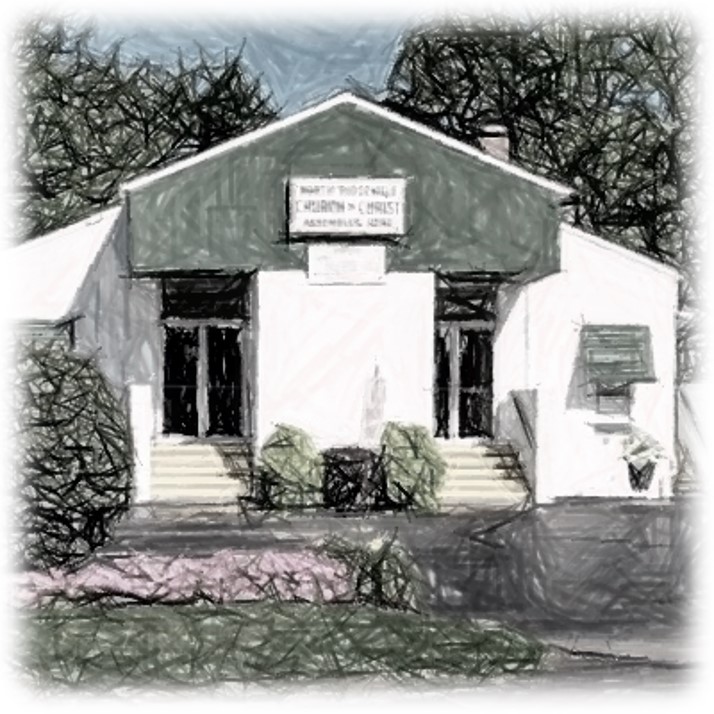"Faith. What Is It?"
Steven J. Wallace
"Now faith is the substance of things hoped for, the evidence of things not seen" (Heb. 11:1).
The subject of faith frequently finds itself in the discussions that take place in religious and non-religious circles alike. Like many Biblical words, there can be various definitions associated with it. The book of Hebrews gives us a definition of faith.
Let's observe that faith is not "blind." It is not a feeling or a desire. It is not a belief that is based on a naked wish. It is not, "I believe this is because I want it to be so."
Rather, faith is the substance of things hoped for. The word translated "substance" means a setting or placing under, like a substructure. It is a source of confidence. It has been described as a title deed that establishes assurance in the reality of something. We can believe in the reality of a piece of property based on its deed. Faith is a title deed of the things we hope for because God has deeded these things to us by way of promise.
Faith is the evidence of things not seen. This evidence is not based on material things which collide with the senses. The Hebrew writer speaks of the nature of things not seen. The New American Standard interprets this as, "…the conviction of things not seen." What gives us conviction of unseen things? Such blessed assurance and conviction come from what God has spoken. "So then faith comes by hearing, and hearing by the word of God" (Rom. 10:17).
In the background of Hebrews, the original recipients were in danger of turning away from Christ and losing their reward. They needed endurance, and they needed to reclaim with confidence the things they had hoped for in faith (Heb. 10:35-39). Hebrews 11 addresses the faith that saves as being the substance of things hoped for and the evidence of things not seen.
By such faith, the elders obtained a good testimony (Heb. 11:2). The elders are those Old Testament heroes who lived by faith. He gives a rich sample of such (Abel, Enoch, Noah, Abraham, Sarah, etc.). These men and women were those who believed to the saving of the soul (cf. 10:38). Abel obtained a witness that he was righteous (11:4). Enoch had the testimony that he pleased God (11:5). Yet without faith, it is impossible to please Him (11:6). This is not having faith in self or in others, but having faith that serves as a title deed of God's promised possession for the faithful. It expresses itself in the simple sentiment: "God said it, I believe it, and that settles it."
"By faith we understand that the worlds were framed by the word of God, so that the things which are seen were not made of things which are visible" (Heb. 11:3). We accept by faith that God created the universe from nothing and spoke it into existence (Psa. 33:9). God said, "Let there be," and "it was so" (Gen. 1:3-31). This doesn't mean blind faith, but rather faith in all that God is and has proven Himself to be. The experience of faith is closely and critically connected with knowledge for by faith we understand. God gives us knowledge of things to believe. For example, I can believe confidently that if I die, I can be resurrected. This is not based on a personal wish or desire, but because Jesus promised and proved it historically by rising from the dead (Jn. 5:28, 29; Matt. 28:5-7). My faith is in something unseen that has a substructure and title deed in what Jesus personally did!
We behold invisible realities by knowledge. Seeing is not believing; believing is seeing! Noah was warned of things "not seen" but he moved with godly fear in preparing an ark (Heb. 11:7). Although he likely had never seen rain, that didn't stop him from building an ark. God's warning was proof, and he moved with assurance of a flood.
Abraham went out toward his inheritance not knowing where he was going (Heb. 11:8). Sarah received the ability to conceive although she never experienced such before (11:11). Physically it looked impossible, yet she judged Him faithful who had promised. Abraham believed God could raise Isaac from the dead. Not because he had seen a resurrection, but because he received Isaac from the deadness of Sarah's womb. That served as Abraham's title deed of faith regarding the hard command to offer up Isaac (Heb. 11:17-19).
Joseph made mention of the departure for the children of Israel and gave instructions about his own body. He never lived to "see" this but he believed in it based on God's word (Gen. 15:13-16; 50:24, 25). Moses refused to be called the son of Pharoah and chose to suffer with the people of God. He forfeited the treasures of Egypt for Christ's greater riches. How? By seeing the invisible (Heb. 11:24-27).
Faith is not based on nor defined by the physical sight of things. It is built on seeing the invisible God. Peter wrote to some who did not see Christ but nevertheless believed in Him (1 Pet. 1:8).
In all, Bible faith is active and moves to obey. The status of faith barren of works is dead (Jas. 2:26). Demons believe (mentally accept the reality of God) and yet tremble (Jas. 2:19). They are not saved. Some believed in Jesus but were unwilling to confess Him because of the fear of the Pharisees (Jn. 12:42). They allowed the things seen to stomp out any assurance and conviction.
If the Bible mentioned you, how would it read? "By faith [_insert name_] obeyed when he/she was called to go out" (see Heb. 11:7). Or would it read more like John 12:42, "[_insert name_] believed in Him, but because of the [______?______] he/she did not confess him"?
.
